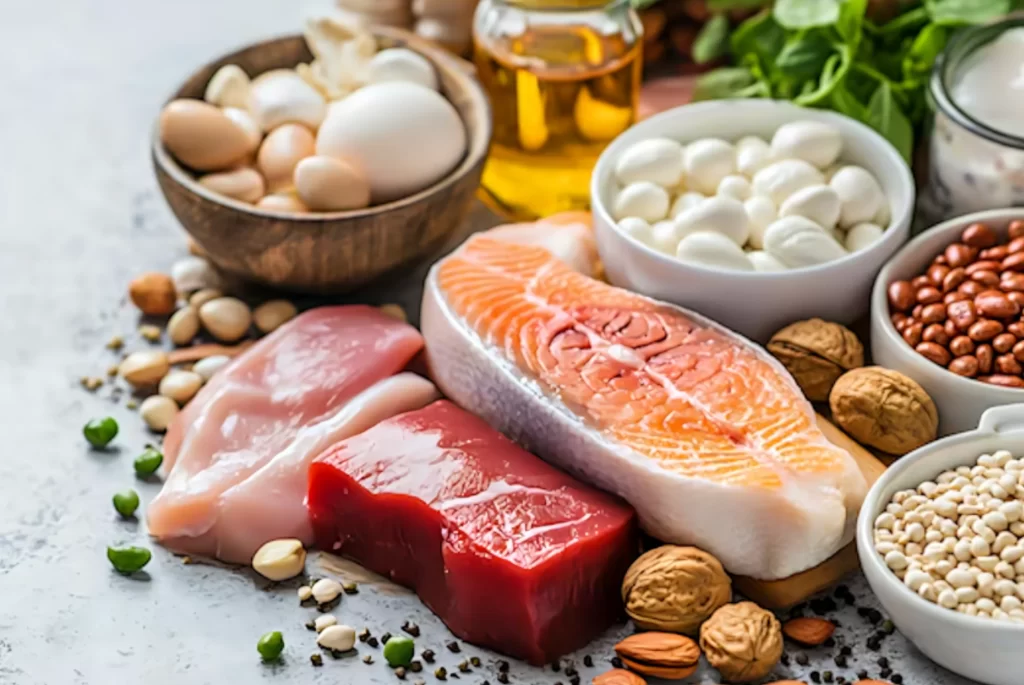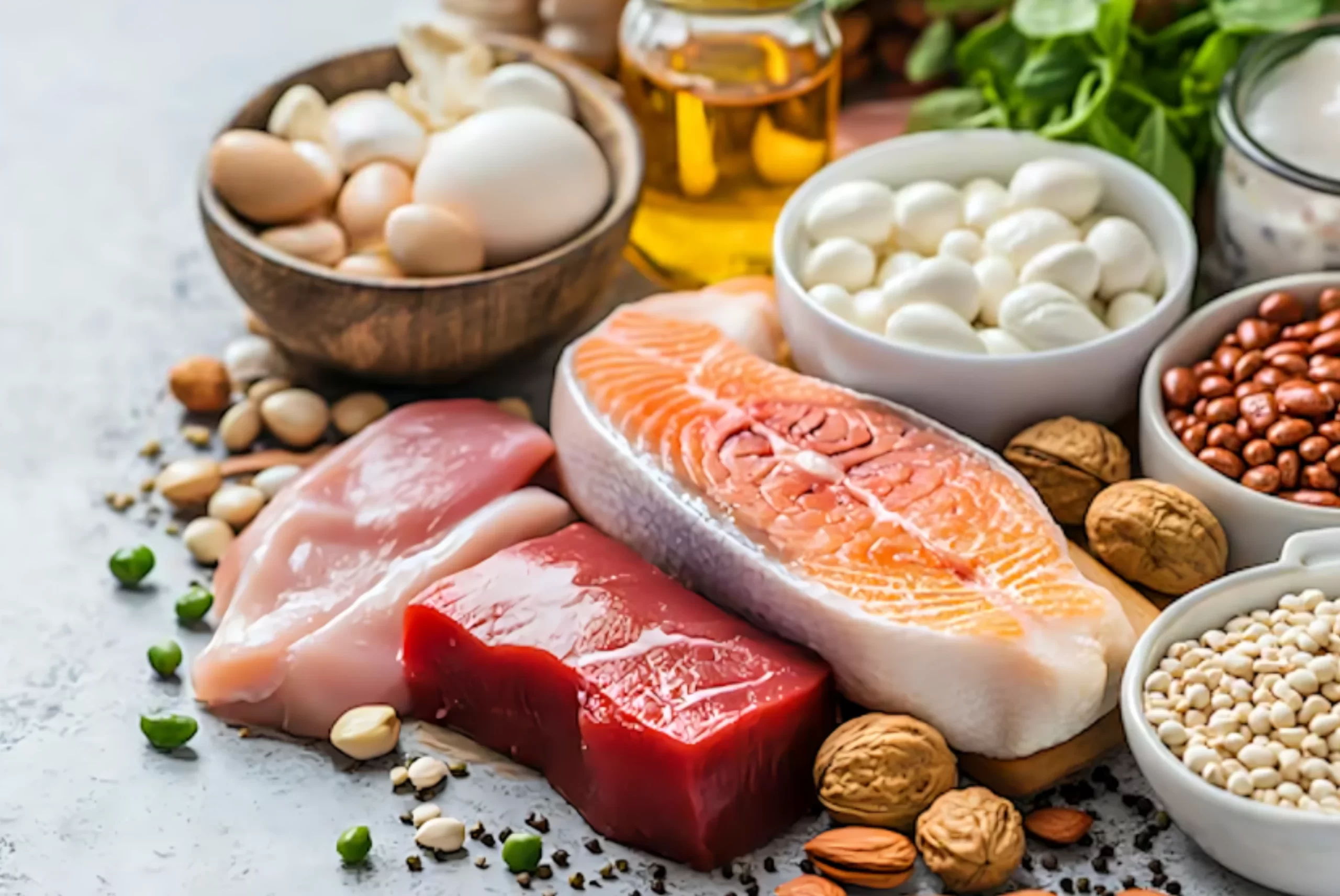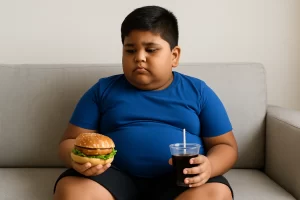Protein for Fat Loss and Muscle Maintenance: What You Need to Know

When it comes to transforming your body—whether your goal is losing fat, building lean muscle, or simply feeling stronger—protein is your secret weapon. Often called the building block of life, protein supports nearly every function in your body. But its role becomes especially important during weight loss and strength training.
In this blog, I’ve broken down why protein is essential for fat loss, muscle preservation, and recovery, and how to get the most from your intake.
1. Protein Keeps You Full and Reduces Cravings
One of the biggest challenges during a weight loss journey is managing hunger. That’s where protein shines.
High-protein foods are more satisfying than carbs or fats and take longer to digest—helping you stay fuller, longer.
Protein regulates key hunger hormones:
- Reduces ghrelin (the “hunger hormone)
- Boosts peptide YY and GLP-1, hormones that increase satiety
Result: You naturally eat fewer calories without feeling deprived or constantly hungry.
2. Protein Helps Preserve Lean Muscle While Losing Fat
When you’re in a calorie deficit, your body can burn both fat and muscle for energy. Losing muscle slows down your metabolism and can sabotage long-term results.
Consuming enough protein while dieting:
- Stimulates muscle protein synthesis
- Reduces muscle breakdown
- Supports lean body mass, especially when paired with strength training
Why it matters: The more muscle you have, the more calories you burn—even at rest.
3. Protein Burns More Calories Through Digestion (Thermic Effect)
Did you know your body burns more calories digesting protein compared to carbs or fats?
This is called the Thermic Effect of Food (TEF):
- Protein: 20–30% of calories burned during digestion
- Carbs: 5–10%
- Fat: 0–3%
Example: Eating 100 calories of protein might cost your body 20–30 calories just to process it.
Takeaway: A high-protein diet slightly increases your daily calorie burn—supporting weight loss without extra effort.
4. Protein Speeds Recovery and Supports Training Performance
When you exercise—especially lifting weights—you create tiny tears in your muscle fibers. Protein helps repair and rebuild those muscles stronger than before.
Benefits of post-workout protein:
- Reduces muscle soreness
- Boosts recovery speed
- Preserves muscle during fat loss phases
Pro tip: Prioritize protein after strength training to protect hard-earned muscle and speed up recovery.
5. How Much Protein Do You Really Need?
Your ideal protein intake depends on factors like your body weight, activity level, and fitness goals.
Here’s a quick guide:
- General health: 0.8g per kg of body weight
- Active lifestyle: 1.2–2.0g per kg
- Fat loss & muscle retention: 1.6–2.4g per kg
Example: A 70 kg (154 lb) person trying to maintain muscle while losing fat should aim for 112–168 grams of protein per day.
6. Best High-Protein Food Sources
Aim for a mix of animal-based and plant-based protein depending on your preferences and diet.
Animal-Based Protein:
- Chicken breast, turkey, lean beef
- Eggs and egg whites
- Greek yogurt, cottage cheese
- Fish (salmon, tuna, mackerel)
- Whey or casein protein powder
Plant-Based Protein:
- Lentils, chickpeas, black beans
- Quinoa, tofu, tempeh
- Nuts and seeds
- Plant-based protein powders (pea, soy, rice)
Final Thoughts: Make Protein a Priority
Protein isn’t just for athletes or bodybuilders—it’s essential for anyone trying to lose weight, preserve muscle, and feel stronger.
From controlling hunger and boosting your metabolism to enhancing workout recovery and maintaining lean muscle, protein is a game-changer for long-term fitness success.
Action Step: Make sure every meal includes a quality source of protein. Pair this with resistance training, proper sleep, and a calorie-smart diet for the best results.










Comments are closed